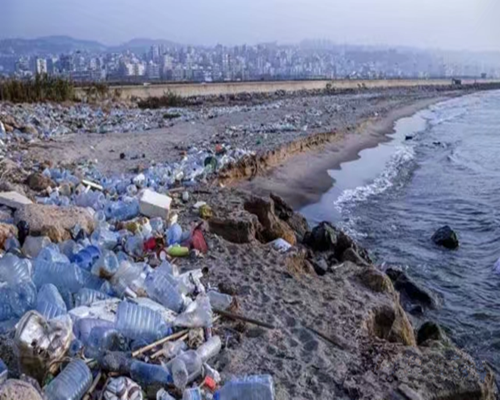Take immediate global action! Plastic has entered the human food chain and is killing more and more creatures. . .

Recently, in a new study published in "Science", a large international research team developed a new computer model to track the flow of global plastic pollution. They report that in the next two decades, Biodegradable Trash Bags without extensive intervention, more than 1.3 billion tons of plastic waste will flow into the world's oceans and land.
Nowadays, plastic pollution has spread all over the world. It is widely present in oceans, lakes and rivers, soil and sediments, atmosphere and animal life.
In recent decades, the rapid rise of disposable plastic consumer products and the prevalence of "disposable" culture have exacerbated this problem, causing waste to spread across the ocean and land, which has long exceeded the capacity of the world's waste disposal system.
Previous studies estimated that about 8 million tons of large plastics and 15,000 tons of primary microplastics enter the ocean every year. Biodegradable plastic bags If plastic production and waste generation continue to grow at the current rate, it is expected that by 2050, the amount of improperly managed waste will more than double. By 2025, the cumulative amount of ocean plastics will increase by an order of magnitude from 2010 levels.
There is increasing evidence that plastic pollution has a wide range of harmful effects. Previous studies have shown that nearly 700 marine species and more than 50 freshwater species have swallowed or become involved in plastic. Degradable Shopping Bags And there is growing evidence that plastic is swallowed by a wide range of terrestrial organisms. Plastic pollution has affected many aspects of human life. Although the harmful effects of microplastics (defined here as plastics smaller than 5 mm) have not been consistently proven, there are records of ingestion of microplastics in the entire nutritional level and in all organisms in the deep ocean and terrestrial organisms. Microplastics are also increasingly appearing in the human food system, although their impact on human health is currently difficult to determine, and further research is needed.
Costas Velis, a co-author of the study and lecturer at the University of Leeds in the United Kingdom, said: “This study gives us a comprehensive understanding of how amazing the amount of plastic waste dumped in terrestrial and aquatic ecosystems around the world is. And have a clearer understanding of the final result."
During the COVID-19 pandemic, the use of single-use plastics is expected to increase by 40%, but as countries no longer use reusable products due to health concerns, the government has also reduced recycling operations, which has become even more important. Big problem.
The model shows that by 2040, plastic waste flowing into the ocean is expected to more than double, which will kill more marine life and eventually enter the human food chain. Most polymer polyethylene plastic packaging is used only once and then thrown away. Biodegradable Straw Therefore, the biggest source of pollution comes from household municipal waste.
Researchers predict that even if governments promise to reduce plastic waste, in the next 20 years, about 133 million tons of plastic will be incinerated, 77 million tons of plastic will be dumped on land, and 29 million tons of plastic will eventually be dumped into the ocean. Biodegradable Tableware A major issue is the degree of open burning of plastic waste. Although combustion can reduce the amount of plastic dumped into the ocean, the combustion process releases greenhouse gases that cause global warming, as well as carcinogens that are harmful to human and animal health, such as dioxins, mercury and styrene gases.
Researchers say that comprehensive measures such as reducing plastic production and consumption, replacing plastics with biodegradable products, creating recyclable products, expanding waste collection capacity around the world, Biodegradable Garbage Bags and curbing waste exports may reduce the amount of plastic flowing into the ocean by 80 in 2040. %. Although global efforts to curb plastic consumption and pollution can reduce pollution by about 80%, even in the best case of global action, by 2040, approximately 710 million tons of plastic will still be dumped in the environment.
For more product information, please click on the official website:
http://www.fullsunbiotech.com/




